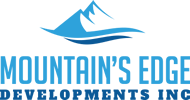THE NEXT BIG DOOR
Last week we focused on “One Big Door;” that article was especially for the folks who are motivated and figuring out that first property. Then what? When you’ve got your first, or third, or fifth property—what’s next?
Just like car enthusiasts look for their next vehicle, and Market investors look for their next stock pick, Real Estate investors are often out looking to collect their next rental property. As with any worthwhile journey, there will be obstacles to overcome.
The latest hurdle, for an investor’s next door, looks like it will be the new rules for uninsured mortgages. This regulation is aimed directly at investors, who are supplying 20% or more of the financing as a down payment.
Who makes the rules? OSFI=The Office of the Superintendent of Financial Institutions. This is a Canadian federal agency that literally makes the rules and supervises the big banks: Royal Bank, TD, Scotiabank, BMO, CIBC, and National Bank. Yes, OSFI does a lot more, but we’ll keep it relevant to your next big door.
Why are they using a stress test for uninsured mortgages with larger down payments? The idea is to create a safety margin. We all know that eventually mortgage rates will rise—the only question is when? Let’s talk numbers to clarify. If you have a $400,000 mortgage, at 2.14% interest rate, amortized over 25 years, your payments are roughly $1720. What if that interest rate doubles to 4.28%, all other variables being equal—then your payments are roughly $2165.
OSFI wants to protect both the banks and the consumers by building in a margin of safety into everyone’s budget. I’m guessing a few of those policy-makers remember the 1980’s, where interest rates were 15% and UPPP! They want to test your income and your other debts to see if you can handle a potential increase in monthly mortgage payments.
One question we hear from other investors recently is “what if my 2020 tax year was below other years—but I’m still employed and my income is rising already in 2021?” They’re wondering if there is a way around the impending OSFI rule changes.
Yes and No. OSFI makes the rules for the big 6 banks, so no wiggle room there. If you are working with a bank loan officer, you may be able to access capital through a HELOC, but you might not qualify for the next mortgage.
Sooooo …. How bad do you want it?
- A mortgage broker can look at all your finances and still provide safe and prudent advice and lending options with credit unions, trust companies, or online banks. Sometimes, they are aware of products at the Big 6 that your bank officer may not have made you aware of. (Each bank’s loan officers have a job is to sell you products at one bank). A mortgage broker’s job is to find the best option for your financial situation.
- If the new OSFI 5.25% rule is blocking you, REITs (Real Estate Investment Trusts) are also a great option. A group of people pool their capital to invest in a product with expected or predicted rates of return. There is less work and often a more predictable rate of return with these products. The timeline for investing, return of capital, and dividend or other payouts can vary between REITs.
- Multi-family investing is incredibly popular right now. The bank rules for a property with 5 or more doors are very different than the bank rules for a single family or suited house. In addition, many people love the economy of scale that these properties bring (eg. one boiler, 16 doors).
And the 4th most common alternative to traditional bank financing is Private Lending. Maybe you have cashed out some of your equity from the Toronto or Vancouver markets and are curious about the Alberta market? A safer way to start in a new area can be as a private lender, on a short or medium term project. Often you can secure your capital to a property’s title (Warren Buffet’s Rule #1: don’t lose money). And you can also sign documents that provide a fixed rate of return. That lowers your risk until you learn more about the new city or province that you are investing in.
Some people simply prefer Private lending. There can be tax advantages, and there are definitely no 2 am toilets involved! Private lending still allows you to invest in a tangible and insurable asset, without adding the element of being a landlord. A mortgage broker can assist you to place private capital, or you can invest with people you know, like and trust—in a way that aligns with your goals and your timelines.
The moral of today’s story … is that the new OSFI rule for uninsured mortgages does NOT need to stop you. If you love the return on investment and return on time that real estate can provide, keep going. You have choices.
As working partners, we offer our time and energy to help our investor partners grow their wealth. We bring years of experience in renovations and property management—meaning WE solve problems, so YOU invest minimal time. We’re always eager to chat with other investors, and with anyone looking to learn about real estate investing. @MtnEdgeRenovate @MtnEdgeDevelops https://mountainsedgerenovations.com/ https://mountainsedgedevelopments.com/


